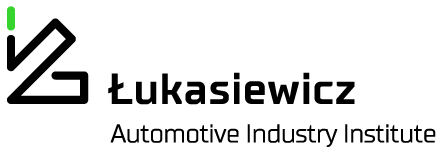Intellectual Property Protection and Literature Review Editor’ guidelines on paper preparation
Authors are obligated to adhere to the subsequent principles of intellectual property protection and appropriate literature use, thereby ensuring the highest ethical and editorial standards.
- All submitted manuscripts must constitute an original contribution from the author(s), devoid of plagiarism, including self-plagiarism. Every component—be it text, data, figures, or other graphic elements—must be either wholly original or published previously with the express consent of the copyright holder. Failure to fulfill this requirement will lead to the manuscript's rejection or, if published, its retraction.
- All submitted manuscripts are verified using an anti-plagiarism system to detect potential originality infringements. This system analyzes the text against published sources, databases, and previously submitted works. If unauthorized borrowing or improper citation is detected, the manuscript will be rejected, and authors will be informed of the verification results. In instances of doubt, authors may be asked for further explanations.
- All references to external research, data, theories, or publications must be explicitly acknowledged in the text and listed in the bibliography. Citations should be precise, furnishing complete bibliographic details in accordance with the format outlined in the "Guidelines for Authors." Authors are strongly encouraged to rigorously verify all sources, thereby preventing the propagation of errors or ambiguous references.
- References cited should typically not be older than 10 years, with exceptions made only when justified by the specific nature of the topic (e.g., classic works or foundational publications within a field). Incorporating the most recent research is imperative to ensure the article's contemporary relevance and scientific significance. Authors bear the responsibility for verifying the reliability of all cited sources and confirming their derivation from reputable scholarly publications.
- Authors are obligated to uphold the principles of scientific ethics, which include refraining from data falsification, manipulation of results, and the unauthorized appropriation of another's intellectual property. For co-authored works, all individuals designated as authors are required to have made a substantial contribution to the work's development and to have approved its definitive version.
- AI tools may be utilized to support language enhancement, data analysis, and idea generation, contingent upon complete disclosure within the manuscript. Conversely, the use of AI for generating substantive portions of the manuscript, creating fictitious data or images, or assigning authorship to it is strictly prohibited. Authors retain sole responsibility for verifying and guaranteeing the originality of any AI-generated content, and insufficient transparency regarding the deployment of these tools shall constitute a breach of publication ethics.
The identification of intellectual property transgressions, such as plagiarism, self-plagiarism, or a deficiency in proper citation, will necessitate responsive actions in strict adherence to The Archives of Automotive Engineering – Archiwum Motoryzacji's policy. These repercussions may include, but are not limited to, the rejection of the manuscript, the retraction of its publication, the formal notification of the author's affiliated institution, and other sanctions delineated within the established publication ethics guidelines.
Compliance with these guidelines guarantees the integrity of scientific endeavors, safeguards intellectual property rights, and maintains the high standards of publications within The Archives of Automotive Engineering – Archiwum Motoryzacji. Authors are encouraged to reach out to the editorial team for any inquiries concerning intellectual property, literature verification, or the use of AI.
Korzystamy z plików cookie (oraz innych podobnych technologii) i przetwarzamy unikalne identyfikatory oraz dane przeglądarki – w celu umożliwienia funkcjonowania naszej strony internetowej. Więcej informacji o tym jak przetwarzamy Twoje dane osobowe znajdziesz w


